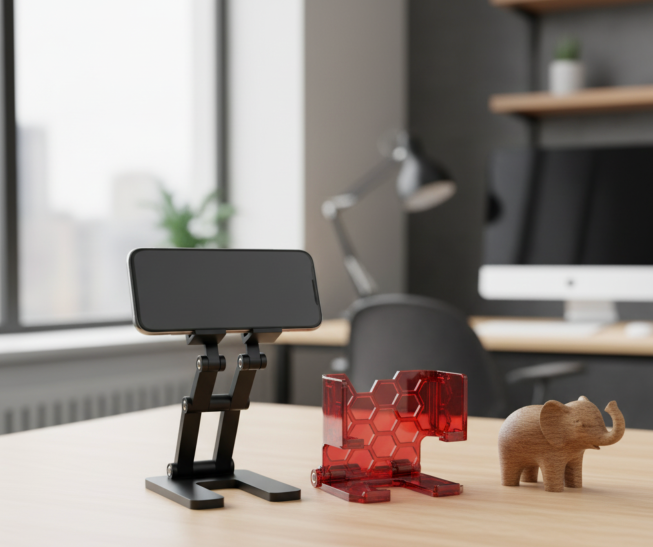PLA & PLA+Material
The most popular 3D printing material, perfect for prototypes, indoor parts, and detailed models
TEMP
60-65°C
COLORS
15+
ECO
BIO

ECO-FRIENDLY MATERIAL
PRINT EASE
Very Easy
Key Properties
| PROPERTY | VALUE | RATING |
|---|---|---|
| Temperature Resistance | 60-65°C | |
| Tensile Strength | 37-42 MPa | |
| Flexibility | Low | |
| Print Difficulty | Very Easy | |
| Surface Finish | Excellent | |
| Biodegradable | Yes |
Typical Applications
Prototyping
Indoor Parts
Educational
Art & Design
Design Guidelines
Minimum Wall Thickness
1mm for structural parts, 0.8mm for non-structural
Thinner walls may be fragile and prone to breaking
Overhang Angles
Maximum 45° without support
PLA can bridge short distances well but needs support for steep overhangs
Layer Adhesion
Excellent between layers
Parts have good strength in Z-direction compared to other materials
Post-Processing
Easy to sand, paint, and glue
Takes paint and adhesives very well for finishing
Available Colors
White
Black
Red
Blue
Green
Yellow
Orange
Purple
Gray
Brown
Pink
Light Blue
Light Green
Silver
Gold
Don't see the color you need?
Industry Applications
Automotive Prototyping
Dashboard components and interior parts with intricate details for design validation
KEY BENEFITS:
Educational Models
Anatomical models and educational tools for medical and scientific learning
KEY BENEFITS:
Frequently Asked Questions
Is PLA food safe?
We do not recommend PLA for food contact applications. For food-safe printing, please use our PETG material which is FDA approved for food contact.
How does PLA+ differ from regular PLA?
PLA+ is a modified version of PLA that offers improved strength, temperature resistance, and impact resistance while maintaining the ease of printing that PLA is known for.
Can PLA parts be used outdoors?
PLA is not recommended for outdoor use as it can degrade under UV light and high temperatures. For outdoor applications, consider PETG materials.
What layer heights are available for PLA?
We offer 0.1mm (fine detail), 0.2mm (standard), and 0.3mm (draft) layer heights. 0.2mm provides the best balance of quality and speed for most applications.
Start Your PLA & PLA+ Project
Ready to bring your design to life with professional FDM 3D printing?